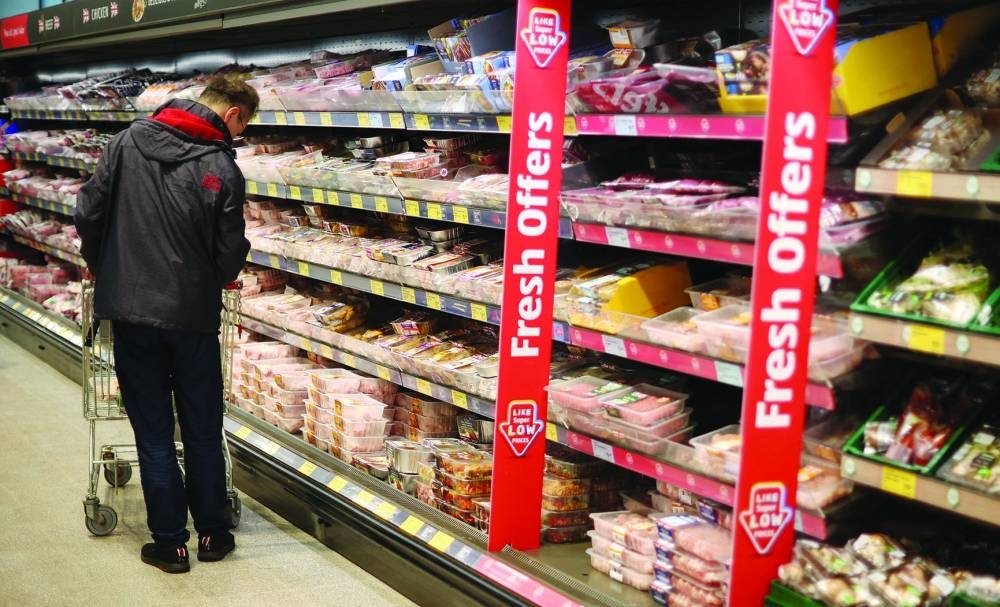Britain’s unwanted status as the only large advanced economy still to have double-digit inflation represents just one symptom of the serious economic malaise faced by the country.
Annual consumer price inflation (CPI) in Britain fell to 10.1% last month but defied forecasts for a bigger drop from February’s 10.4%, according to data published on Wednesday.
The figures underscored the risk that Britain suffers high inflation for longer than other similar economies due to its reliance on natural gas for heating and electricity and the structure of state subsidies to smooth out price changes.
The Bank of England worries that high inflation might cause a lasting increase in wage demands and business pricing strategies, exacerbated by a post-pandemic reduction in the labour force and trade and jobs market problems caused by Brexit.
Five pounds ($6.21) in Britain today will only go as far as £4 did in 2019 - a rate of inflation unmatched by other Western European countries over the same period.
“Inflation in the UK has risen further and stayed higher than elsewhere as the UK has experienced the worst of both worlds: a big energy shock like the eurozone and labour shortages - even worse than the US,” said Ruth Gregory, deputy chief UK economist at consultancy Capital Economics.
The International Monetary Fund last week forecast British inflation would average 6.8% this year, the highest of any major advanced economy, but not much above Germany’s 6.2% forecast.
Energy is a big part of the story.
British consumer energy prices were 79% higher in March than their level two years earlier, the biggest increase in western Europe.
“The overarching difference that stands out is one of timing of energy support. It’s clear this is having a massive impact,” said Sandra Horsfield, an economist at Investec.
Differing methods of measuring energy bills and the array of national subsidies to help households cope with surging prices after Russia’s invasion of Ukraine have made comparisons more difficult, but economists say there is no doubt that Britain has been hit hard.
Britain’s high rate of energy inflation reflects its heavy reliance on gas for power generation and home heating as well as the poor energy efficiency of its housing stock.
Nonetheless, energy inflation in Britain is likely to follow the eurozone and fall sharply from April as the surge in prices seen last year starts to drop out of the annual comparison.
But domestically generated price pressures are likely to slow the pace of decline in headline inflation.
Prices of consumer services - watched closely by central bankers as an indicator of home-grown price pressures, often from wages - rose by 6.6% in the year to March, with only Austria in western Europe posting a higher rate.
While Britain typically has higher services inflation than the eurozone, that wedge has grown wider in recent months - with economists pointing to the labour market as a culprit.
A rise in early retirement, long-term illness and migration trends have depleted the pool of workers, meaning the recovery of Britain’s labour market from the pandemic is trailing that of international peers.
“Supply is weak because of Brexit and workforce sickness. We do not expect those chronic supply problems to ease in the near-term,” Bank of America economist Robert Wood said in a research note. - Reuters

A shopper walks along the meat aisle inside an ALDI supermarket near Altrincham, Britain.
